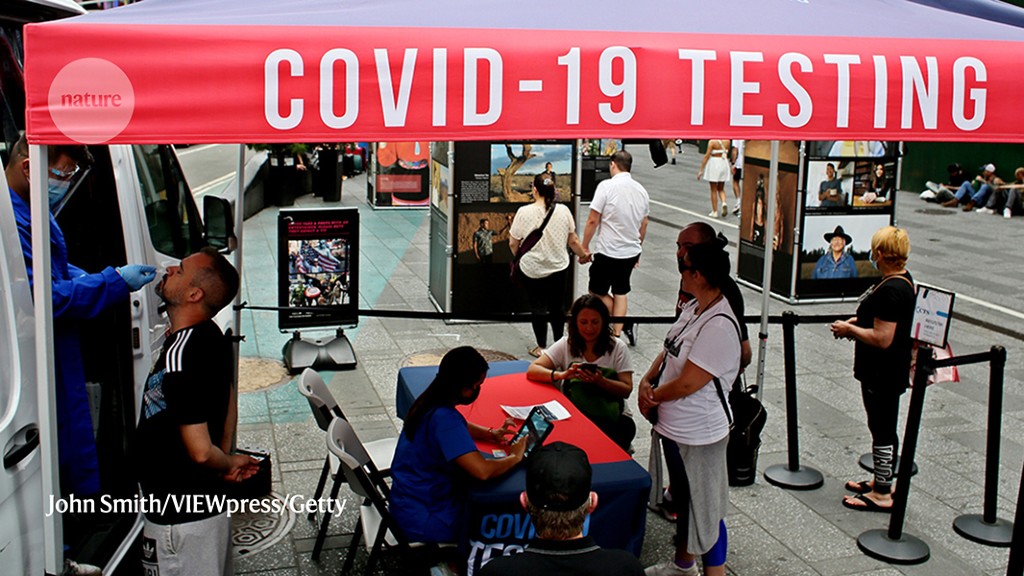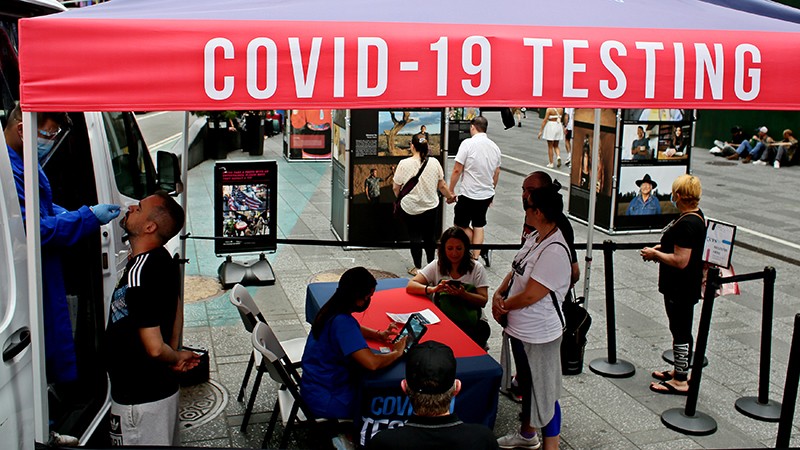The Omicron BA.4 and BA.5 subvariants of SARS-CoV-2 have proven to be stealthier at evading people’s immune defences than all of their predecessors.
But recent research shows that previous infection with an older variant (such as Alpha, Beta or Delta) offers some protection against reinfection with BA.4 or BA.5, and that a prior Omicron infection is substantially more effective. That was the conclusion of a study that evaluated all of Qatar’s COVID-19 cases since the wave of BA.4 and BA.5 infections began1.
The work, which was posted on the medRxiv preprint server on 12 July and has not yet been peer reviewed, feeds into broader research on “how different immunities combine with each other”, says study co-author Laith Abu-Raddad, an infectious-disease epidemiologist at Weill Cornell Medicine-Qatar in Doha.
Everyone has a different immune history, because people have received different combinations of COVID-19 vaccines and been infected with assorted variants during the course of the pandemic. “Different histories equip people with different immunity against upcoming infection,” says Abu-Raddad. Knowing how these diverse immune responses interact inside a person will be “very important for the future of the pandemic”, he adds.
Natural immunity
To see how much protection previous infection offers against the two Omicron subvariants, Abu-Raddad and colleagues analysed COVID-19 cases recorded in Qatar between 7 May this year — when BA.4 and BA.5 first entered the country — and 4 July. They looked at the number of people known to have been infected previously who tested positive or negative for COVID-19, and identified which infections were caused by BA.4 or BA.5 by examining positive test samples to see whether they contained a protein that these subvariants lack.
The researchers found that infection with a pre-Omicron variant prevented reinfection with BA.4 or BA.5 with an effectiveness of 28.3%, and prevented symptomatic reinfection with either subvariant with an effectiveness of 15.1%. Prior infection with Omicron granted stronger protection: it was 79.7% effective at preventing BA.4 and BA.5 reinfection and 76.1% effective at preventing symptomatic reinfection.
Although it seems counterintuitive to see stronger protection against any reinfection than symptomatic reinfection, the researchers say this effect is in line with previous studies and is probably caused by the estimates having wide confidence intervals.
Time between infections
“It’s a good study,” says Kei Sato, a virologist at the University of Tokyo. But he points out that the length of time between first and second infections could have influenced the results. Earlier variants have been around longer than Omicron, which emerged only in late 2021. And several studies, including one by the same team in Qatar2, have shown that natural immunity against SARS-CoV-2 wanes over time.
Alex Sigal, a virologist at the Africa Health Research Institute in Durban, South Africa, agrees. “The time that [has] passed since your original infection is much shorter with Omicron, so it’s really not a fair comparison,” he says. Sigal adds that participants’ vaccination statuses are unclear from the results, as is information on whether primary infections took place before or after vaccination, which could be an important consideration.
Abu-Raddad says the study’s purpose was to investigate who is currently most prone to reinfection, rather than to attribute natural immunity to a particular viral strain. He says the study’s design controls for the effects of vaccination, and the team conducted a sensitivity analysis to adjust for vaccine status, the results of which were consistent with the overall conclusions.
“The immunity you’re getting from these Omicron infections actually protects you from other Omicron sub-lineages to some extent,” says Sigal. However, “COVID is everywhere,” Sato warns. “It can easily evolve into a new variant.”





More News
Publisher Correction: Interferon subverts an AHR–JUN axis to promote CXCL13+ T cells in lupus – Nature
We are junior scientists from emerging economies — the world needs more researchers like us solving global problems
Elusive high-energy neutrinos spotted at LHC